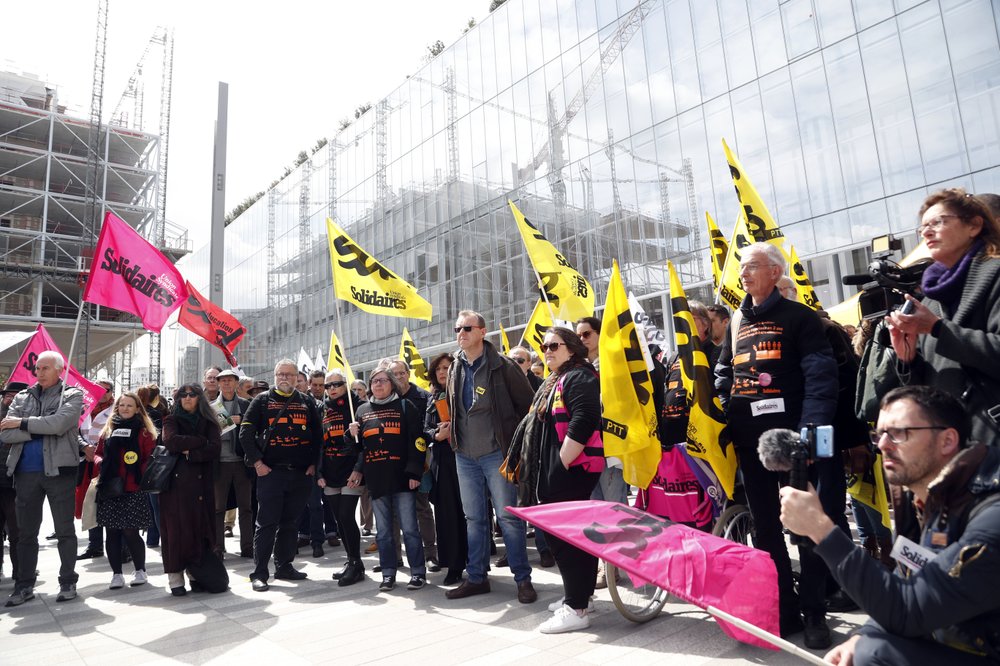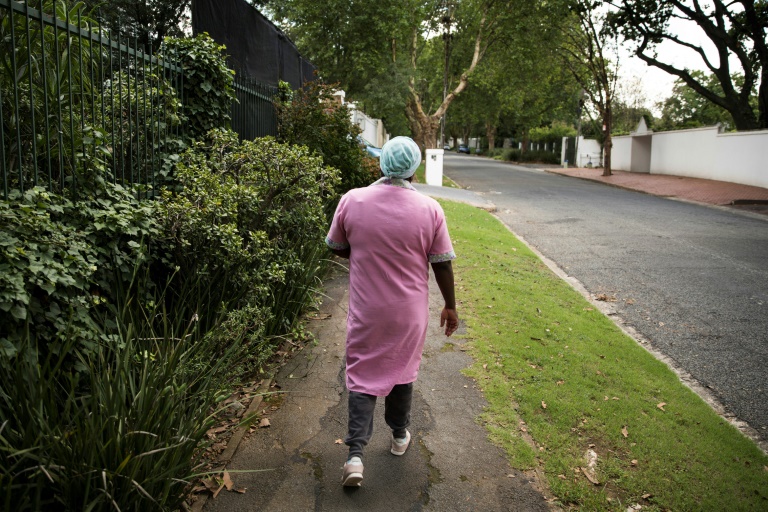Presidential candidates are out and about on Labor Day trying to gather support from laborers, a key constituency. While laborers are not a homogeneous group ideologically, they do represent around 5 million Egyptians of voting age and representing a large set of shared interests.
Many candidates have stated they are in line with “all of the workers’ demands.” Some have a history of fighting for workers’ rights to support these claims, while others have some proving to do if they are to claim the mantle of being the candidates for labor.
“Without labor, the revolution will not be successful. The revolution was the result of the oppression of workers by tyrannical forces that controlled the country,” presidential candidate Khaled Ali said in an address to workers on the eve of Labor Day.
Ali is no stranger to labor issues and workers’ rights. Some of the 40-year-old lawyer’s most famous cases involved defending rights for unions and laborers, as well as pushing for an increase in the minimum wage.
In his address, Ali said “the laborer initiated” every major street movement and revolution in Egypt since the 1919 revolution and pledged to include many of their causes as central planks in his presidential platform.
Given Ali’s history and fame among laborers, whom he counts as one of his main bases of support in his campaign, it is not surprising that his campaign platform is the most concentrated on labor issues.
Ultimately, Ali said he would like to give labor unions more power so that they are able to be masters of their own fates in achieving their rights. He promised workers that he would pass a Syndicate Freedoms Law as president, which would allow syndicates and workers’ unions to operate completely independent from the state. A draft law of this has been circulating since July 2011 without ever being implemented, though it has been revived recently in the People’s Assembly.
The Muslim Brotherhood’s Freedom and Justice Party candidate, Mohamed Morsy, decided to officially inaugurate his campaign on Labor Day in the city of Mahalla, in Gharbiya Governorate. Ahmed al-Egeizy, the FJP head in Gharbiya, said the party chose Mahalla “because it is the city with the largest concentration of laborers in the country, and raised the flag of disobedience in the face of the former [Mubarak] regime,” referring to a 2008 worker uprising in that city.
In a statement published on the Muslim Brotherhood’s website, Egeizy said that according to the FJP’s Renaissance Project platform Morsy is running on, workers will be a top priority. The FJP’s plan for workers is based on helping factories and industrial zones become more efficient. According to Egeizy, the Renaissance Project aims to provide good infrastructure, materials, and modern machinery for factories, as well as smaller businesses, to make them more efficient and productive.
Former Foreign Minister Amr Moussa, one of the front-runners in the race, has a similar approach to workers’ rights. He believes rights must be accompanied by increasing the productive capacities of the industrial sector. In his Labor Day address, Moussa promised a host of reforms aimed directly at laborers. He revealed that he would implement a minimum wage in both the public and private sector, without specifying how the wage would be set and on what basis.
Former Muslim Brotherhood leader Abdel Moneim Abouel Fotouh, an independent candidate, took a similar approach to the minimum wage.
Other candidates were more specific about minimum wage demands. Ali promised workers that he would push for an LE1,500 a month minimum wage. Leftist Tagammu Party candidate Hesham al-Bastawisi and Nasserist candidate Hamdeen Sabbahi said they support a LE1,200 per month minimum wage.
In his Labor Day address, Moussa also promised a complete overhaul of all labor laws similar to Ali, so that workers would be given rights to form independent unions, have representation on the boards of directors of public companies, and the right to review cases of workers who were either laid off or took pay cuts as a result of privatization of public companies under Mubarak. This last reform is less defined than that of Ali, who has long advocated for laborers harmed during the privatization process and already has a clear idea of which privatized companies need to be re-nationalized and which workers need to be re-employed.
Moussa was more specific when speaking about unemployment benefits, saying they would amount to half the minimum wage for up to nine months. Similar to Abouel Fotouh, Moussa consistently promises to institute government-funded vocational training for out of work youths so that their skills match labor demand.
Sabbahi is also a staunch advocate of raising the skill sets of young Egyptians to a higher level, and concurrently tying wages to skills and training, rather than having pay based on nepotism or corrupt dealings.
Workers have a whole host of demands that go beyond unionization and wages. Some candidates seem to know exactly what these are, and made a point to address them. Bastawisi and Ali promised to revamp the national insurance system and recuperate “lost” funds within the organization.




